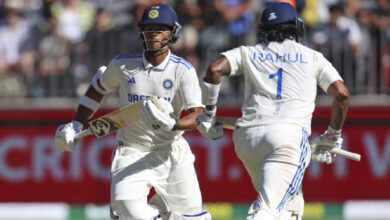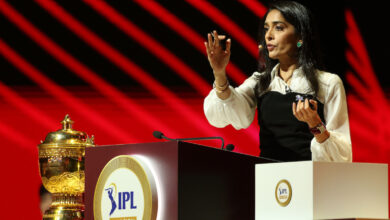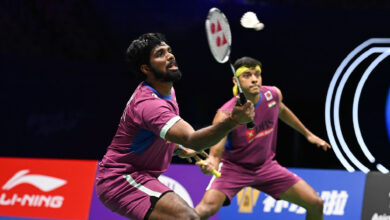How prisoners in India’s jails began to play chess, win medals in FIDE tournament, and changed their lives | Chess News

After India’s recent success at the Chess Olympiad in Budapest, there were more medals for India at the international level: a gold and a bronze. These medals, though, were unique: they were won juvenile prisoners housed in Bhopal and Elluru prisons at the fourth Intercontinental Online Chess Championship for Prisoners. It’s an annual world-wide event held online and organised FIDE, the global governing body of chess.
While the juvenile team from Bhopal claimed gold, the junior team from Elluru prison claimed bronze.
Beside the two youth teams, two more Indian teams were in the fray for medals on Thursday: a team from Yerwada Prison lost in the men’s section after a battle for a bronze medal while a women’s team from Tihar Jail lost to a team from Romania after their clash extended to the tiebreaks. 115 nations were represented this year with India having nine teams at the event.
But more than medals, the initiative to have prisoners playing chess is aimed at changing their lives and giving them a purpose.
Grandmaster Abhijit Kunte, who helms the program in India called “Parivartan: Prison to Pride” run the Indian Oil Corporation, provides the big-picture perspective.
“Some prisoners were in a very bad situation. They used to keep fighting with each other. But after they started playing chess, it reduced considerably. Because they thought that it is better to think about chess and what to do next… One prisoner told me that they are very happy that people outside the prison are thinking about them. The sense I got while interacting with them was that everyone feels that they are just neglected. They are forgotten. But they’re getting recognition from chess. They are getting a purpose to stay there. Earlier there was no purpose,” Kunte tells The Indian Express.
Kunte, who was the coach of the Indian women’s team at the Olympiad and is currently captaining the PBG Alaskan Knights in the Global Chess League being held in London, estimates that he’s trained around 120 prisoners in the 9-10 prisons he visited in the last two years.
This year’s batches from all prisons have been trained Indian chess players like international master Eesha Karavade, international master Soumya Swaminathan and grandmaster Lalit Babu, who physically visited the prisons.
Kunte remembers the hesitation he encountered from everyone initially. There were plenty of restrictions on the trainers, including not taking pictures inside the prison. But those concerns eventually melted away when the benefits started to become apparent.
“When I went into prisons for the first time, there was a lot of resance. Resance from players, authorities, everyone. But when I went the second time, the jailor, the inmates, the police, everyone was taking pictures with the winning team. It was the first time I saw that the prison authorities and the players are working together to achieve something for the country. That feeling itself was something different for me,” says Kunte.
The authorities don’t like to reveal the names of the players or why they’re in prison. But there are about 30 prisons in India where the program is being implemented. Of those nine teams qualified for this year’s international event, four were in the men’s section, three in the youth section and two in the women’s section.
Teams from India had also won medals in the two previous editions of the Intercontinental Online Chess Championship for Prisoners. In October 2023, the Yerawada Central Prison team had won the gold medal while the year before they had won bronze.
Having prisoners playing chess does help them think about a restart when they leave, says Kunte.
“This program gives prisoners a lot of confidence. It tells them that it is not that they are not wanted. being a part of their prison’s chess team, they got the feeling that they are important, they are wanted. Whatever has happened in the past is gone. Now you have a new life, you can do something better, which can be recognized society. For them that recognition is very crucial.”







